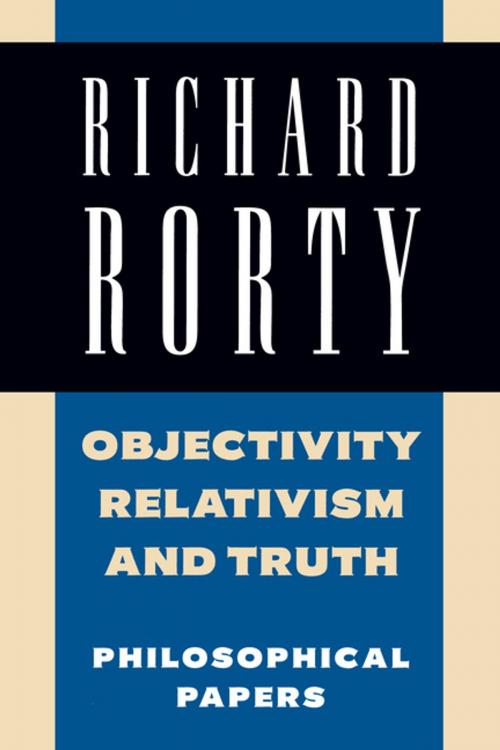Objectivity, Relativism, and Truth: Volume 1
Philosophical Papers
Nonfiction, Religion & Spirituality, Philosophy| Author: | Richard Rorty | ISBN: | 9781139930031 |
| Publisher: | Cambridge University Press | Publication: | November 30, 1990 |
| Imprint: | Cambridge University Press | Language: | English |
| Author: | Richard Rorty |
| ISBN: | 9781139930031 |
| Publisher: | Cambridge University Press |
| Publication: | November 30, 1990 |
| Imprint: | Cambridge University Press |
| Language: | English |
Richard Rorty's collected papers, written during the 1980s and now published in two volumes, take up some of the issues which divide Anglo-Saxon analytic philosophers and contemporary French and German philosophers and offer something of a compromise - agreeing with the latter in their criticisms of traditional notions of truth and objectivity, but disagreeing with them over the political implications they draw from dropping traditional philosophical doctrines. In this volume Rorty offers a Deweyan account of objectivity as intersubjectivity, one that drops claims about universal validity and instead focuses on utility for the purposes of a community. The sense in which the natural sciences are exemplary for inquiry is explicated in terms of the moral virtues of scientific communities rather than in terms of a special scientific method. The volume concludes with reflections on the relation of social democratic politics to philosophy.
Richard Rorty's collected papers, written during the 1980s and now published in two volumes, take up some of the issues which divide Anglo-Saxon analytic philosophers and contemporary French and German philosophers and offer something of a compromise - agreeing with the latter in their criticisms of traditional notions of truth and objectivity, but disagreeing with them over the political implications they draw from dropping traditional philosophical doctrines. In this volume Rorty offers a Deweyan account of objectivity as intersubjectivity, one that drops claims about universal validity and instead focuses on utility for the purposes of a community. The sense in which the natural sciences are exemplary for inquiry is explicated in terms of the moral virtues of scientific communities rather than in terms of a special scientific method. The volume concludes with reflections on the relation of social democratic politics to philosophy.















